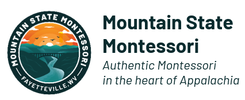NRGLC Operational FAQ
1. What are the school’s hours?
Monday – Friday 8:45 am – 3:15 pm (3-yr & 4-yr olds are in the classroom until recess/lunch from 12-1 and in After School Care from 1-3:15)
Daily Schedule
8:30 am – 8:40 am – Student Drop-Off
8:45 am – 12:00 pm – Morning Work Cycle
12:00 pm – 1:00 pm – Lunch and Recess
1:00 pm – 3:15 pm – Afternoon Work Cycle or After School Care (for 3 & 4 year olds)
3:15 pm – Student Dismissal
3:15 pm – 3:30 pm – Parent Pickup
3:30 pm – 5:30 pm – After School Care
Daily Schedule
8:30 am – 8:40 am – Student Drop-Off
8:45 am – 12:00 pm – Morning Work Cycle
12:00 pm – 1:00 pm – Lunch and Recess
1:00 pm – 3:15 pm – Afternoon Work Cycle or After School Care (for 3 & 4 year olds)
3:15 pm – Student Dismissal
3:15 pm – 3:30 pm – Parent Pickup
3:30 pm – 5:30 pm – After School Care
2. Is there After School Care?
Yes! We have an After School Care program from 3:15 pm – 5:30 pm (fees associated)
3. Is there Before School Care?
Not yet!
4. What is the school calendar?
We operate from Sept through June. Click HERE for our current school calendar.
5. What is the tuition?
Tuition this year is $6000 a year or $500 a month if paid over 12 months. Please know that $6000 does not cover the total cost of educating a child at NRGLC, and we will still need to fundraise for additional funds. We are asking families that are so inclined to donate to a financial aid fund that we are establishing to help cover the costs for families that may not be able to afford full tuition.
Here are some other important details:
Here are some other important details:
- The cost of a second child is $5400; a third child is $5000.
- We do offer a Tuition Assistance Program for those families who qualify. (Tuition Assistance is based on availability of funding)
- 3&4 year olds attend Afterschool Care from 1-3:15, if they stay the afternoon.
6. Are there fees in addition to the tuition?
Additional fees can include:
- application fees
- annual re-enrollment
- field trips
- student pictures
7. Is NRGLC a registered private school as recognized by the state?
The NRGLC is a registered private school with the West Virginia Board of Education and operates an 'Approved' Kindergarten program.
8. Why does NRGLC not serve lunch?
We do not currently have a kitchen facility to do so. A healthy lunch should be provided each day in easy-to-access containers for your child.
9. I heard you have a few rules about food allowed at the school. Why is that?
We place a high priority on our school food policy because we recognize its power to:
Fuel learning: Healthy meals support our school’s core mission of education, especially when it comes to boosting students’ concentration, focus and cognitive function. A vast body of research shows that improved nutrition in schools leads to increased focus and attention, improved test scores and better classroom behavior. In addition to staying alert during class, eating a healthy diet helps children fight off illnesses, and grow into strong, healthy adults.
Support healthy habits and consistent messages: Nutritious food at school helps students develop lifelong healthy eating habits. It also contributes to a culture of wellness at school, reinforcing nutrition education messages from teachers and administrators. We hope that eating healthy food at school will also increase our school’s connectedness and reinforce to our students, their families and our community that students’ health and well-being are valued.
Fuel learning: Healthy meals support our school’s core mission of education, especially when it comes to boosting students’ concentration, focus and cognitive function. A vast body of research shows that improved nutrition in schools leads to increased focus and attention, improved test scores and better classroom behavior. In addition to staying alert during class, eating a healthy diet helps children fight off illnesses, and grow into strong, healthy adults.
Support healthy habits and consistent messages: Nutritious food at school helps students develop lifelong healthy eating habits. It also contributes to a culture of wellness at school, reinforcing nutrition education messages from teachers and administrators. We hope that eating healthy food at school will also increase our school’s connectedness and reinforce to our students, their families and our community that students’ health and well-being are valued.

